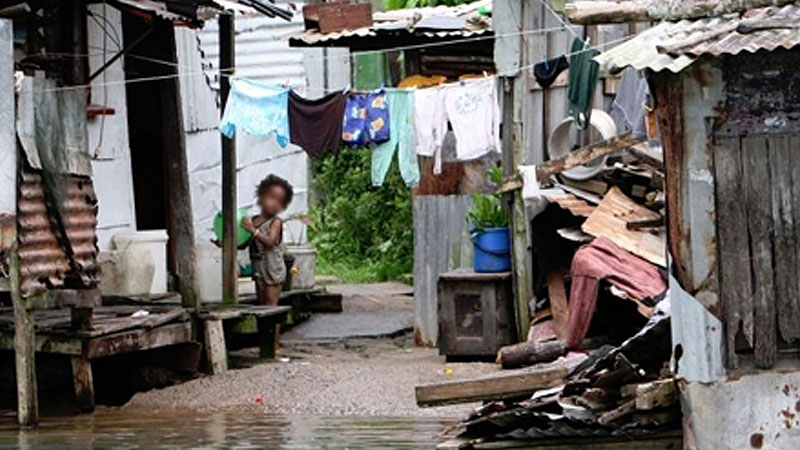
The Asian Development Bank says Fiji’s poverty rate has been rising, even before the impact of the COVID-19 pandemic, and the most recent household income and expenditure survey found Fiji’s cost-of-basic-needs poverty rate reached 29.9% in 2019– 2020.
In its recent reclassification of Fiji by the ADB from Group C to group B countries which means that Fiji will now be able to access concessional financing from the ADB, the report had highlighted that with modest economic growth rates (averaging 3.1% from 2015 to 2019) Fiji has found it challenging to significantly reduce remaining poverty.
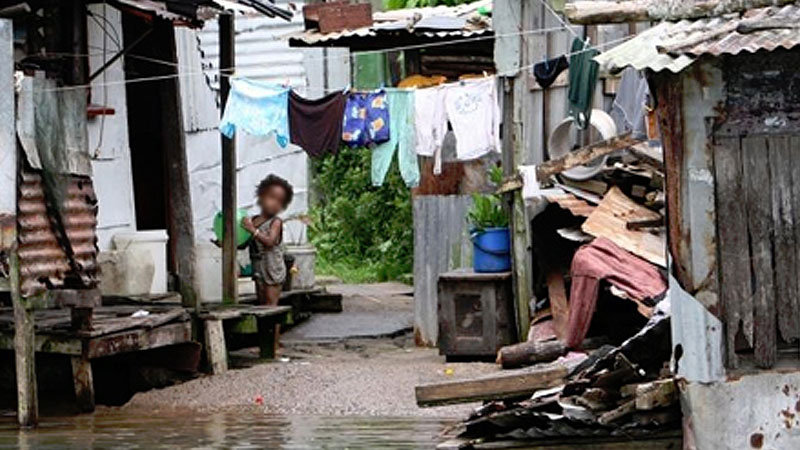
The Asian Development Bank says Fiji’s poverty rate has been rising, even before the impact of the COVID-19 pandemic, and the most recent household income and expenditure survey found Fiji’s cost-of-basic-needs poverty rate reached 29.9% in 2019– 2020.
In it’s recent reclassification of Fiji by the ADB from Group C to group B countries which means that Fiji will now be able to access concessional financing from the ADB, the report had highlighted that with modest economic growth rates (averaging 3.1% from 2015 to 2019) Fiji has found it challenging to significantly reduce remaining poverty.
It says at current rates, Fiji is unlikely to meet its 2030 Sustainable Development Goals poverty reduction target, which requires halving poverty in all its dimensions according to national definitions.
According to the ADB, Fiji’s human development index rating for 2019 was 0.743, second highest among Pacific Island countries. That positions Fiji in the high human development classification at 93 of 189 countries and territories.
It also says Fiji’s growth from 2010 to 2019 averaged 3.3 percent.
The ADB says the economy contracted by 0.4 percent in 2019, largely because of lower public spending coinciding with a global downswing, before plunging by 19 percent in 2020 as the COVID-19 pandemic impacted tourism and related sectors.
Fiji’s contraction during 2020–2021 was the third largest among ADB’s developing member country in the Pacific (after Palau and the Cook Islands).
The ADB says like other small island developing member countries, Fiji relies on tourism, which can be a volatile source of growth and revenues.
Tourism accounted for about 32 percent of Fiji’s gross domestic product in 2019; that share declined to 10.9 percent of GDP in 2020 because of travel restrictions associated with COVID-19.
Fiji’s economic outlook has been severely affected by the COVID-19 pandemic—both through the sudden stop in tourism and the effects on related sectors, and by extended domestic lockdowns in response to major virus outbreaks in 2020 and 2021.
ADB’s latest forecast is for a 5 percent contraction in 2021.
It says a rebound could occur in 2022 and 2023, but that would be contingent on a resumption in tourism.
The ADB says even if a recovery does start in the coming 1 to 2 years, the depth of Fiji’s depression means that it will take many years to return to pre-pandemic income levels.
It also says that even before the COVID-19 pandemic, Fiji’s public debt-to-GDP ratio was higher than other Small Island Developing States and had been steadily rising from 43 percent in the 2014 financial year to 48 percent of GDP in 2019, driven by sustained fiscal deficits coupled with major natural disaster-events requiring large reconstruction.
Public debt-to-GDP is projected to have jumped to 62.3 percent of GDP in the 2020 financial year because of the COVID-19 pandemic and the International Monetary Fund estimates this to reach 82 percent of GDP in the 2021 financial year. The government currently forecasts that public debt will peak at a record level of 91.6 percent of GDP in the 2022 financial year.
It also says the latest published IMF Article IV assessment, conducted in early 2020, noted that Fiji’s debt profile already showed moderate levels of risk of debt distress at the onset of the COVID-19 pandemic.
Nonresidents held 32 percent of public debt at the end of the 2021 financial year, while the remaining 68 percent was held by residents.
About half of the public debt is held by one entity: the Fiji National Provident Fund.
At this time, the IMF noted its expectation for public debt to increase steadily, posing greater risks to debt sustainability.
Disasters triggered by natural hazards and contingent liabilities from state-owned enterprises were also highlighted as posing further risks to public debt sustainability.
The IMF also notes that contingent liabilities have continued to surge during the pandemic as the government extended loan guarantees to state-owned enterprises and will require close monitoring.
A public expenditure and financial accountability assessment in 2020 scored Fiji a “B” for the quality of its debt management and an “A” for (i) recording and reporting of debt management and (ii) approval of debt and guarantees. However, Fiji earned a “D” for the absence of an endorsed debt management strategy.
To address this weakness, the government approved a new medium-term debt management strategy in January 2021 for the 2021 to 2023 financial year.
The strategy articulates the government’s debt objectives and outlines the framework for formulating and implementing a prudent borrowing program for the 2021 to 2023 financial years. It expresses the government’s intention to (i) source its financing needs and payment obligations at the lowest possible cost, balanced with acceptable levels of risk; and (ii) support the development of a wellfunctioning domestic market for debt securities.
To track the progress of the new strategy, the government is publishing information on debt cost and risk indicators in its quarterly and annual debt bulletins, which are made available to the public through the Ministry of Economy’s website.
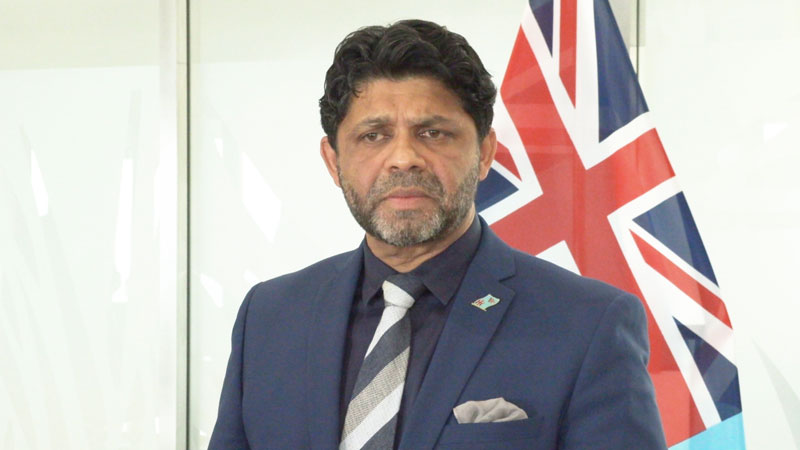
Acting Prime Minister and Minister for Economy, Aiyaz Sayed-Khaiyum says unfortunately, people who are raising concerns about government debt are not telling the people what would have been the impact if the government would not have borrowed money when COVID-19 hit us and halved government revenue.
When questioned on the ADB report noting IMF’s assessment that Fiji’s debt profile already showed moderate levels of risk of debt distress at the onset of the COVID-19 pandemic, Sayed-Khaiyum says the ADB has highlighted the debt situation of many countries however unfortunately some media organisations like CFL tend to focus on that but we have not looked at the cost of debt and the term of the grace period.
He also says essentially a part of some of the long term loans will in fact become a grant.
Sayed-Khaiyum says if the government did not borrow the money, we would have had a devaluation of the Fijian dollar which would have caused enormous socio-economic issues.
He also says we need to look at why was the money money borrowed and where was the money used.
Sayed-Khaiyum says this includes the government’s ability to provide half a billion dollars worth of assistance to members of the society which include unemployment benefits channeled through FNPF of $185 million, the two rounds of $360, the $90 and $50 payouts, the market vendors fees being paid, the taxi drivers’ renewal licence and the GP services. He says all of this has helped put money in people’s pockets or help them defray their day to day costs or giving them services that has made their life easier.
Sayed-Khaiyum says free education and social welfare payments were also not stopped.
He also says the JICA loan signed yesterday makes up the three tranches.
Sayed-Khaiyum says the first tranche of $187.2 million is for a 15 year loan period, 4 years grace period and at a 0.01 percent interest rate.
He says the second tranche is a stand by loan for disaster recovery rehabilitation of $92.8 million. This is at a high concessionary rate with an interest rate of 0.01 percent but it has a 40 year payment period inclusive of 10 years grace period.
The third tranche is $185.7 million for a 15 year loan period, 4 years grace period and 0.01 percent interest rate. This is part of the ADB Sustainable and Resilient Recovery Program, and this loan facility is through JICA.

Unity Fiji Leader and former Governor of the Reserve Bank of Fiji Savenaca Narube says there is no such thing as smart borrowing and there was no need whatsoever for the government to borrow to avoid devaluation last year.
Narube says the Acting Prime Minister and Minister for Economy, Aiyaz Sayed-Khaiyum is barking up the wrong tree and misleading the people.
He has made these comments following Sayed-Khaiyum’s response to questions by fijivillage where he had stated that if the government did not borrow the money, we would have had a devaluation of the Fijian dollar which would have caused enormous socio-economic issues.
Narube says the Fiji dollar is pegged to a basket of currencies and to maintain this basket peg, we must hold sufficient foreign reserves. He says if foreign reserves dropped to a critically low level, the peg comes under pressure, and we may have no choice but to devalue or even abandon the peg altogether.
He says Sayed-Khaiyum’s logic that he needed to borrow offshore last year to support our foreign reserves is pure propaganda.
Narube says foreign reserves are very high at 11 months of imports of goods and services, more than double the accepted benchmark for Fiji of 5 months of imports therefore, if the government did not borrow from offshore last year, foreign reserves would have remained at above 8 months of imports, well above the acceptable level.
Narube maintains there was no pressure at all for a devaluation.
He further says as incomes have dropped by $2 billion in the last two years, demand for imports are depressed and import payments had declined by 5% up to September last year.
Narube adds the higher remittances and the sale of shares of EFL also supported foreign reserves and therefore, there was no need at all to borrow to avoid devaluation.
He also says Sayed-Khaiyum went on to say that COVID had significantly reduced revenue and the Government had to borrow otherwise the economy would have been worse off.
He says this logic is flawed as the first thing that a smart government should have done in such a situation is to reduce the large wastage in the budget which would have avoided borrowing and save Fiji from interest payments and fees which are already costing the country $400 million a year.
Narube also states that the removal of wastage would have raised the impact of total government spending on the economy which would offset any impact of lower expenditure.
Narube says the most efficient strategy to sustain growth and avoid debt is for the government to revive the ailing resource-based industries.
The former Governor of the RBF also says it is unusual for a loan agreement to stipulate that down the line, the loan can become a grant however he is not aware what is in the loan agreement.
Narube was reacting to Sayed-Khaiyum’s comment that a part of some of the long term loans will in fact become a grant.
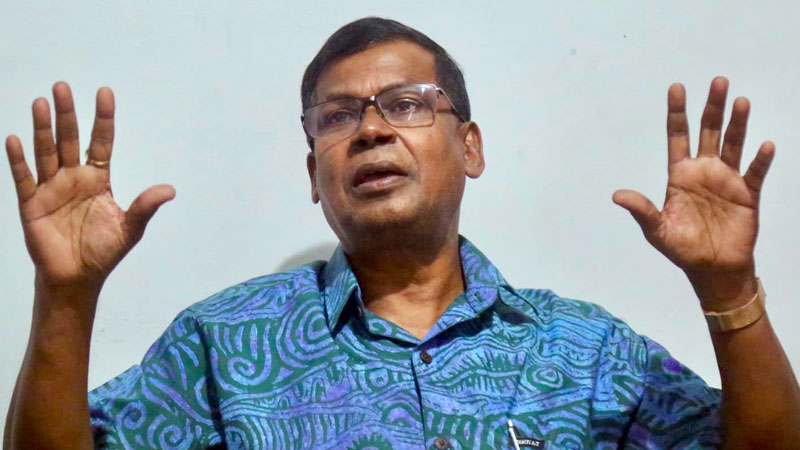
National Federation Party Leader Professor Biman Prasad says serious questions need to be asked about the government’s continuing increasing debt as it will affect the people of this country because taxpayers have to pay back the ballooning debt and government services will get affected as more revenue will be going into paying debts.
Professor Prasad says Acting Prime Minister, Aiyaz Sayed-Khaiyum should know that it is clear that Fiji had borrowed excessively before the COVID-19 pandemic, and the debt has ballooned during the pandemic.
He says there is a real concern now on provision of government services, and this can be seen by people on the ground.
Sayed-Khaiyum has said that unfortunately, people who are raising concerns about government debt are not telling the people what would have been the impact if the government would not have borrowed money when COVID-19 hit us and halved government revenue. When questioned on the ADB report noting IMF’s assessment that Fiji’s debt profile already showed moderate levels of risk of debt distress at the onset of the COVID-19 pandemic, Sayed-Khaiyum said the ADB has highlighted the debt situation of many countries however unfortunately some media organisations like CFL tend to focus on that but we have not looked at the cost of debt and the term of the grace period.
He also says essentially a part of some of the long term loans will in fact become a grant.
However Professor Prasad says the loans have to be paid back even if there is a 5 year or 10 year grace period, and the Fijian taxpayers still have to pay back the loans.
He also says they are not running the government down but they are really concerned about the government’s management of debt and the economy.
The NFP Leader says he maintains that according to his estimates, the government has wasted almost $3 billion between 2015 to 2020.
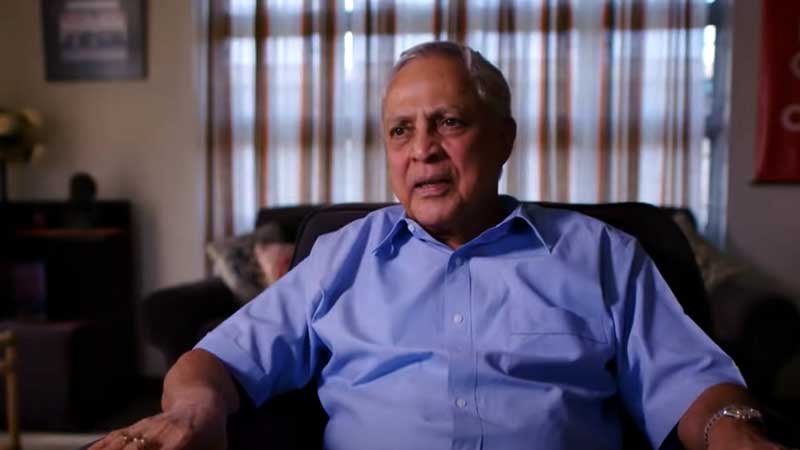
Fiji Labour Party Leader Mahendra Chaudhry says government debt was already a problem way before COVID and in 2019, government was forced to cut its budget by $1 billion.
Chaudhry says this is because there were clear signals from international financial institutions, notably the International Monetary Fund that government had to harness the growing debt level which was unsustainable.
He has made these comments following Acting Prime Minister and Minister for Economy Aiyaz Sayed-Khaiyum’s response to questions by Legend FM News where he had stated that if the government did not borrow the money, we would have had a devaluation of the Fijian dollar which would have caused enormous socio-economic issues.
The former Prime Minister says Sayed-Khaiyum is trying to blame everything on COVID when the problem started way before that.
Chaudhry also says there was no need to devalue the Fijian dollar but the reality is that government revenue had declined substantially by the time COVID hit us.
He says the FijiFirst Government had inflated revenue budgets substantially from 2014 to 2018 which resulted in high fiscal deficits during those years.
Chaudhry says this led to increased borrowings to fund the ballooning deficits.
The FLP Leader says another thing government does not talk about is forcing the people to tap into their FNPF savings which has seriously depleted the money these people had saved for their retirement.
Chaudhry adds these are consequences of government actions and policies.
Sayed-Khaiyum had also said that essentially a part of some of the long term loans will in fact become a grant however Chaudhry says this is something the Attorney General is trying to sell to the public.
Chaudhry says he is not aware of loan agreements which has provisions for it to be converted into a grant, and if there are examples then Sayed-Khaiyum should reveal the details.
Stay tuned for the latest news on our radio stations

